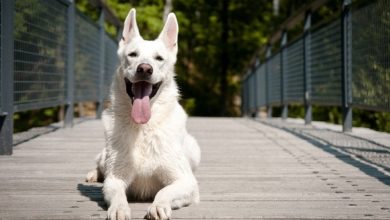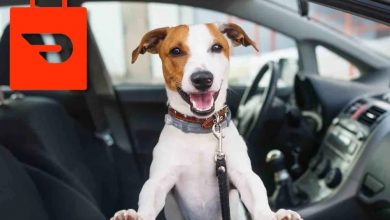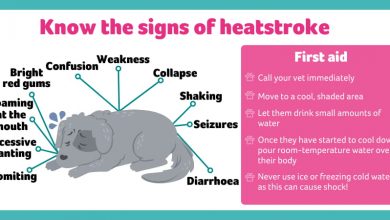Why Does My Dog Eat Frozen Poop

1. Introduction
Dogs are known for their strange behaviors, but one of the most perplexing is when they eat frozen poop. This behavior, known as coprophagia, can be both disgusting and concerning for pet owners who want to keep their furry friends healthy and happy. In this article, we’ll explore why dogs eat frozen poop, what nutritional deficiencies may be at play, how to stop them from doing it, and some prevention tips to keep them away from it in the first place.
2. What is Coprophagia?
Coprophagia is the scientific term for eating feces or dirt, which is a common behavior among dogs of all ages and breeds. While there may be several reasons why your pup has taken up this habit, it’s important to understand that coprophagia isn’t necessarily a sign of poor health or mental illness; rather, it could simply be an instinctual behavior that has been passed down through generations of dogs or learned through observation of other animals in the environment.
3. Reasons Behind Your Dog Eating Frozen Poop
There are many potential explanations as to why your dog might eat frozen poop – ranging from nutritional deficiencies and boredom to genetics and medical conditions – but before you can take steps to prevent this behavior you need to understand why your pup feels compelled to do so in the first place. Here are some possible explanations:
Nutritional Deficiencies and Malnutrition: If your dog isn’t receiving enough nutrients from their diet or if they have an underlying medical condition causing malabsorption of these nutrients, they may turn to eating feces in order to supplement their diet with additional nutrients. Dogs are scavengers by nature and can be drawn to eating feces because it contains undigested food particles that they may find appealing. It’s also possible that your dog may be lacking certain vitamins or minerals in their diet which could lead them to eating frozen poop as a source of sustenance.
Boredom and Stress-Related Behaviors: Eating frozen poop is sometimes seen as an outlet for stress-related behaviors such as anxiety or boredom. Dogs may engage in coprophagia as a way to occupy themselves or relieve stress when they’re feeling anxious or bored. If your pup is left alone for long periods of time without adequate stimulation or exercise, they may turn to eating frozen poop out of boredom or loneliness.
Genetics and Learned Behaviors: Some dogs have been bred over generations with a predisposition towards coprophagia due to their genetics; for instance, certain breeds such as Labradors and Beagles have been known to engage in this behavior more than others. Additionally, if another animal in the home is observed engaging in coprophagia then there’s a chance that your pup could learn this behavior by mimicking them.
Medical Conditions that May Cause Coprophagia: There are several medical conditions that can cause coprophagia in dogs such as diabetes, pancreatic insufficiency, Cushing’s disease, intestinal parasites, thyroid imbalances and more. If your pup is exhibiting any other signs of illness along with eating frozen poop then it’s important to bring them into the vet for a full checkup so that any underlying medical issues can be identified and treated appropriately.
4 How To Stop Your Dog From Eating Frozen Poop
If you’re concerned about your pup engaging in coprophagia then there are several things you can do to discourage them from doing so:
• Feed your pup a high-quality diet with adequate amounts of protein, fat and carbohydrates – this will ensure that they’re getting all the nutrients they need from their food instead of turning to feces for sustenance.
• Make sure your pup gets plenty of exercise each day – this will help keep them active and mentally stimulated which can reduce boredom-related behaviors such as coprophagia.
• Try adding supplements such as probiotics or digestive enzymes into your pup’s diet – these can help improve digestion which may reduce their urge to eat feces.
• Talk with your veterinarian about any underlying medical conditions that could be causing coprophagia – if there is an underlying issue then addressing it can help reduce this behavior.
• Consider using deterrents such as bitter apple spray on areas where you don’t want your pup going – this unpleasant taste can discourage them from returning to those areas again in search of food scraps or feces.
5 Prevention Tips To Keep Your Dog Away From Poop
The best way to prevent coprophagia is by taking proactive steps ahead of time so that your pup never has the opportunity to engage in this behavior in the first place:
• Keep all areas where you walk or play with your pup clean – pick up any feces immediately after they go so that they won’t be tempted by any lingering smells or tastes left behind by other animals’ droppings.
• Keep trash cans covered securely – garbage cans often contain food scraps which can attract animals looking for a snack; make sure yours are always tightly sealed so that no curious noses can get inside looking for something tasty!
• Don’t leave pet food out overnight – leaving pet food out overnight increases the chances that other animals will come around looking for a meal; make sure all pet food dishes are stored away securely after meals have been served so that no one else has access to them during the night hours.
• Use fences around yards – if you have an outdoor area where your pup plays then consider installing a fence around it; this will help keep other animals out while also preventing your pup from wandering off into areas where they might find feces left behind by other pets or wildlife creatures.
6 Conclusion
Eating frozen poop can be both disgusting and concerning for pet owners who want nothing but the best for their furry friends; however, understanding why dogs engage in this behavior is key when it comes to preventing it from happening again in the future. By providing proper nutrition through high-quality diets supplemented with probiotics and digestive enzymes, exercising regularly, using deterrents such as bitter apple spray on areas prone to coprophagia activity, keeping all areas clean where pets play or walk, covering trash cans securely at night time, and consulting with veterinarians about any underlying medical conditions causing coprophagia – pet owners can take proactive steps towards ensuring their pups stay healthy and happy!




